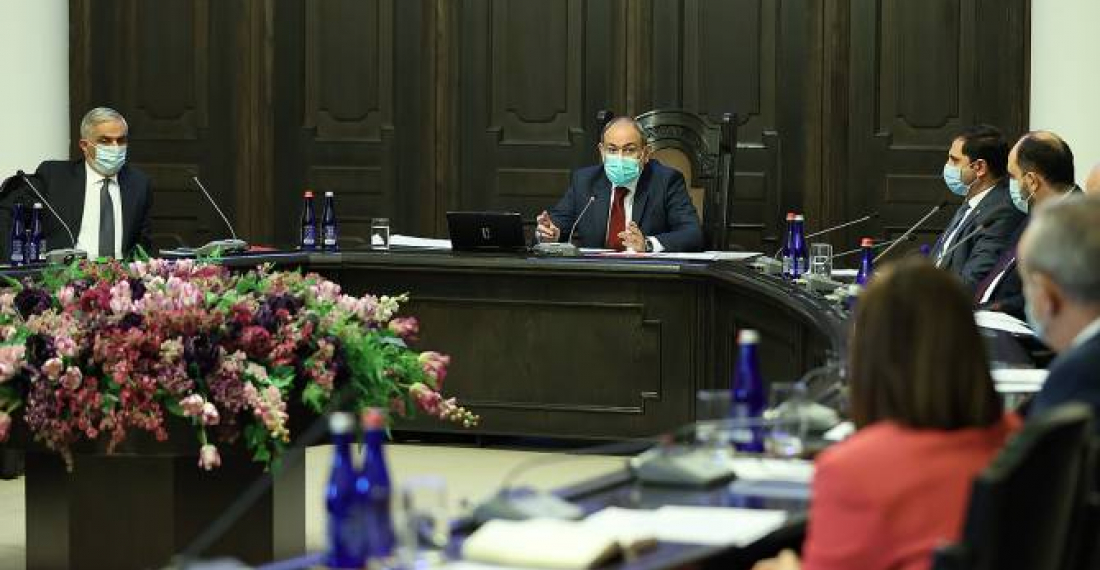Yesterday (18 August), the prime minister of Armenia, Nikol Pashinyan, unveiled the five-year programme of the Government of Armenia. At a Government sitting, Pashinyan outlined the six major sections of the programme: security and foreign policy, economics, infrastructure development, human capital development, law and justice, and institutional development.
He began by stressing that this plan was based on the promises that his party, Civil Contract, had made before the election.
Pashinyan explained that a special focus should be given to the security challenges facing Armenia, and laid out some key factors in ensuring its safety. These included: the modernisation of the army; the use of active foreign policy as a means of establishing working relations with all states and international organisations; ensuring the maintenance of the Armenian-Russian strategic alliance and Armenia’s membership in the Collective Security Treaty Organisation; the engagemnent with the co-chairs of the OSCE Minsk Group; and the establishment of a stable system of national security bodies.
Regarding the economy, Pashinyan unveiled a variety of measures and targets for 2026, such as the eradication of extreme poverty, bringing unemployment to 10% and setting the minimum wage at 85,000 drams.
His proposals for infrastructure and human capital development included, among others, improvement in the education system, increased funding for railways and roads, and more attention and funding to be allocated to address Armenia’s water problems. Pashinyan noted that the EU’s 2.6 billion euro package would play a significant role in funding these projects.
He also discussed some of the issues with the current Constitutional framework, and highlighted the need for debates to be held about whether changes should to be made to the Constitution, stressing the importance of such decisions being made by consensus of a variety of political and public circles. The prime minister also outlined problems with the judicial system, adding that potential reform should be undertaken “to build public confidence in the decisions of the courts in Armenia.”
Talking about Nagorno Karabakh, Pashinyan stated: “I want to say that one of the most important tasks of our government, as before, remains the settlement and management of the Nagorno-Karabakh conflict”. He pointed to two main objectives: “the full restoration of the negotiation process within the framework of the OSCE Minsk Group Co-Chairs, and the restoration of the normal life of Nagorno Karabakh in the sense that it is possible in the current conditions”, noting that significant progress had been made in both of these areas.
Emphasising the importance of the Government's five-year programme, Pashinyan concluded by adding: “this document should become a guideline for the society, for international partners, for us, for public administration. So, this is a document that says what we do, what problems we solve every day when we come to work. I wish all of us success in solving these problems, because I am convinced that the solution to these problems is the way we will achieve the security and prosperity of the Republic of Armenia, develop our country, provide freedom, prosperity and happiness for our citizens”.
The Cabinet must approve the action plan and submit it to parliament for debate which will take place next week. The document will need to be endorsed by the National Assembly within 20 days after the formation of the government.



